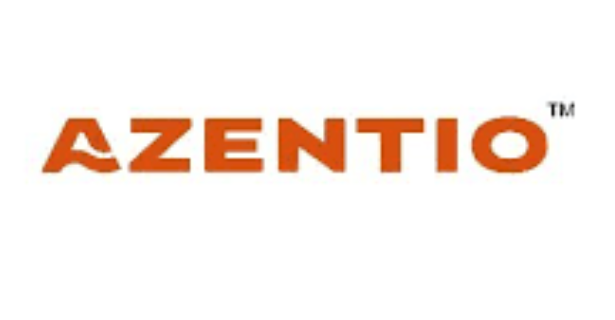News
Azentio Wins 5 key Awards at IBS Intelligence Global FinTech Innovation Awards 2021

Azentio Software (“Azentio”), a Singapore-headquartered software products business owned by funds advised by Apax Partners, today announced that it has won five awards at the IBS Intelligence (IBSi) Global FinTech Innovation Awards 2021.

The prestigious awards program identifies and honours technology players and banks for their excellence in driving impact through innovative financial technology implementations.
IBSi is a leading global fintech research, news analysis, and advisory firm; and its FinTech Innovation Awards are a global commemoration of the best in banking and fintech with 199 participants from across 48 countries, vying for the top honours in 30 award categories this year.
Robin Amlôt, Managing Editor of IBS Intelligence, said, “It gives me great pleasure to congratulate Azentio team for their exemplary performance in this 3rd edition of the IBS Intelligence Global FinTech Innovation Awards 2021. Over the years they have grown and this year they are recipients of 5 awards across categories, this is no mean feat in this highly competitive awards event”.
“We are immensely proud to receive these esteemed awards. Azentio set the bar high in 2021 and was a strategic partner in many of the key implementations across marquee financial services institutions.
“This achievement reinforces our mission to foster continuous innovation and our commitment to deliver successful banking transformation projects for our clients”, stated Tony Kinnear, Chief Executive Officer, Azentio.
The honours include:
– Best Investment & Fund Management Implementation Award for the Most Impactful Project at Tata Mutual Fund, India, with the MFund PlusTM Wealth & Asset Management Solution.
– Best Islamic Banking Implementation Award for the Most Impactful Project at Murabaha Marena Finance, KSA, using the KastleTM Universal Lending Solution (ULS).
– Best Islamic Banking Implementation Award for the Best Project Implementation at Alkhaleej Bank, Sudan, with the iMAL Islamic core banking platform.
– Most Effective Digitization/Paperless Initiative Award for the Most Impactful Project work at Quara Finance, KSA, using the KastleTM ULS.
– Most Innovative API/Open Banking Model Award for the Most Innovative Project at Emkan Finance, KSA, with KastleTM ULS.
News
DBN Awards N13m in Grants to Tech Startups

Development Bank of Nigeria (DBN) has awarded a total of N13 million in grants to three standout tech startups at the 2025 Techpreneur Summit held in Lagos, reinforcing its commitment to innovation and inclusive growth among Nigeria’s micro, small, and medium enterprises (MSMEs).

The winners include: BuyScrap, a digital marketplace for recyclable materials – N6 million; Qiqi Farms, which connects local farmers to hospitality and export markets – N4 million; Eco-Cyclers, a youth-led recycling initiative based in Enugu – N3 million
Alongside the grant awards, DBN also launched a new digital data asset, a first-of-its-kind platform aimed at enabling data-driven decisions within the MSME ecosystem.
The platform offers deep insights into business trends, sector-specific challenges, and growth opportunities—supporting smarter policymaking and targeted investments.
In his keynote address in Lagos, Tony Okpanachi, managing director/ CEO, DBN, described the event’s theme, “CTRL + SHIFT: Tech Empowered Movement for Naija,” as a strategic call to reimagine enterprise development in Nigeria.
“This isn’t just a keyboard shortcut,” he said. “It’s a mindset reset—powered by technology—to build a more inclusive, innovative, and resilient business landscape. From financing to innovation, DBN remains committed to enabling MSMEs to thrive.”
Okpanachi emphasized that the Summit aligns with DBN’s AMPLIFI Strategy, which integrates digital transformation, sustainability, and scalability into its core programs.
He highlighted initiatives such as the Digital Shift Workshops and the Eco-Innovation Challenge as key steps toward embedding innovation in Nigeria’s MSME sector.
Encouraging young innovators, he added: “The future belongs to those bold enough to imagine and build it. DBN is proud to support the ideas that will shape tomorrow.”
A major highlight was the unveiling of the DBN Data Asset—a digital platform designed to provide real-time, evidence-based insights into Nigeria’s MSME landscape.
The platform combines DBN’s proprietary data with external sources like the National Bureau of Statistics (NBS) to offer a comprehensive view of MSME performance by region and sector.
Jeremy Dan Okayi, DBN’s Head of Strategy, Policy & Innovation, described the platform as: “A reservoir of insight, potential, and direction—built on two years of collaboration and shared vision. This tool will support informed decision-making across the public and private sectors.”
News
FCCPC Shuts France, Belgium, and Italy Visa Centres in Abuja Over Alleged Consumer Rights Violations

In a bold enforcement action, the Federal Competition and Consumer Protection Commission (FCCPC), supported by the Nigeria Police Force and the Nigeria Security and Civil Defence Corps (NSCDC), has sealed off the visa application centres of France, Belgium, and Italy in Abuja over alleged consumer protection breaches and obstruction of regulatory investigations.

The affected centres—located at Mukhtar El-Yakub House in the Central Business District and operated by TLS Contact, a Teleperformance Company—were shut down following reports that they refused to accept formal correspondence from the FCCPC regarding a consumer complaint. The Commission cited further infractions, including obstruction of investigation and alleged assault of its officers during lawful duties.
Speaking to journalists at the scene, Mrs. Boladale Adeyinka, Director of Surveillance and Investigations at the FCCPC, explained: “This is an enforcement operation against TLS. On March 25, 2025, we served them a letter to address a consumer complaint, which they refused to accept. Instead, TLS officers assaulted our team, and in a subsequent visit on June 17, they also allegedly assaulted uniformed police officers.”
Citing Section 33 of the Federal Competition and Consumer Protection Act (FCCPA), Mrs. Adeyinka emphasized that failure to comply with Commission directives constitutes a criminal offense, punishable by imprisonment, fines of up to ₦20 million, or both.
TLS has been ordered to appear before the Commission on June 20, 2025, to provide testimony, submit evidence, and make formal depositions. The company may be held liable for any financial losses suffered by applicants due to the disruption of visa services.
Despite multiple requests for comment, management at TLS Contact declined to respond as of press time.
News
How and Why N210 Trillion is Missing in NNPCL – CFO

Adedapo Segun, chief financial officer (CFO), Nigerian National Petroleum Company Limited (NNPC), has explained why there is a missing sum of N210 trillion in the company’s audited financial statement spanning from 2017 to 2023.

According to Segun, the missing funds are cash calls requested by joint venture (JV) partners and settlement to the JVs.
He spokeat a session of the Senate Committee on Public Accounts chaired by Aliyu Wadada.
Segun was responding to an alarm raised by the committee over missing N210 trillion in NNPCL’s audited financial statement.
Recall that Wadada issued a one-week ultimatum to NNPCL to account for the missing N210 trillion.
Reacting, Segun said, “The N103 trillion and N107 trillion are made up of joint venture cash calls that have been requested by the JV operators and JV cash call payments made by NNPCL, which are yet to be reconciled because governance procedures were not done at that time.
“That is why you see the description reflecting those two items would be washed out because they are two sides of the same transaction, which is the cash calls by JV partners and the settlement by NNPCL.”
However, Habu Sadeik, a financial analyst, in a post on X on Thursday, said Segun’s response was unsatisfactory.
Saidik faulted NNPCL’s response about the fund discrepancies, noting that something is not right with the audited financial statement.
“Forget about the senators’ lack of knowledge.
“The CFO’s response is not satisfactory. Are you saying that cash calls worth hundreds of trillions are just appearing on your FS only in 2024 without 31 disclosure?
“If it’s a cash call, why hasn’t the disclosure said so?
“Which cash call is over 100 trillion?
“Something is definitely not right, and I hope they retrospectively correct that FS.
“Someone somewhere did a chef’s work,” he wrote on X.

 News2 days ago
News2 days agoLasaco Assurance to Invest in Technologies, Systems to Deliver Value to Clients

 E-Financial2 days ago
E-Financial2 days agoNIBSS National Payment Stack to Transform Nigerian Instant Payments

 E-Financial2 days ago
E-Financial2 days agoCBN Reaffirms Banking Sector Resilience as Forbearance Ends

 News1 day ago
News1 day agoPalmPay, Glo Launch “Recharge and Win Bonanza 2” with Exciting Prizes

 General News1 day ago
General News1 day agoBridging the Digital Divide: Over 700 Young Africans Empowered by Paradigm Initiative

 General News1 day ago
General News1 day agoIHS Nigeria, United Nations Global Compact Host High-Level Dialogue on Sustainability and Greener Business Practices in Nigeria

 News1 day ago
News1 day agoHow and Why N210 Trillion is Missing in NNPCL – CFO

 General News2 days ago
General News2 days agoMoniepoint Demonstrates Commitment to Nurturing Africa’s Future Leaders


























